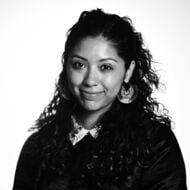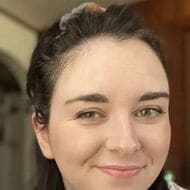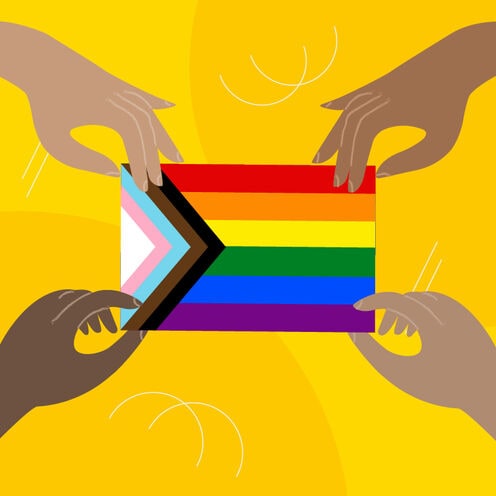
Building Schools Where Students Are Free to Be Their Authentic Selves
Despite politics, protests, and even threats, some educators and students are working to make schools and lessons more inclusive of people who are LGBTQ+.
After coming out as gay when she was a high school freshman, Hailey Saya Tomlinson faced intense homophobia and targeting from students, school administration, and some in the community. Then after coming out as a trans woman this school year, the 17-year-old said, she continued to face threats to harm or kill her.
“There was no way to escape,” Tomlinson, who recently graduated, said of the harassment and hate.
For many reasons, school is often not a safe and welcoming place for students like Tomlinson who are transgender or LGBTQ+. But, educators and advocates say, it should be.
That's why they are creating affirming spaces and inclusive curricula for students, specifically those who are LGBTQ+. That work aims to address the challenges that queer youth often face at school such as bullying and other harassment as well as not seeing themselves reflected in the curriculum. The push to create safe learning environments is also happening as those students and their families are increasingly targeted in legislation that has been introduced across the country.
Hundreds of anti-LGBTQ+ bills have been introduced in state legislatures this year, and many of them specifically target transgender children and their families. Data suggests queer teens are struggling. About 45 percent of queer people surveyed by The Trevor Project, a suicide prevention and crisis intervention organization for LGBTQ youth, said they seriously considered attempting suicide in the last year. That reflects an uptick of 12.5 percent from 2020 to this year. A little over half of the youth who responded to the survey identified their school as an LGBTQ-affirming space.
Creating those inclusive spaces takes intentional effort. Educators say they partner with community organizations. They get student input on everything from building design to instruction. They emphasize and model the importance of open dialogue with students. And in some cases, to ensure students have a place to safely be themselves despite ever-growing backlash, educators build it. That was the case with Magic City Acceptance Academy, which opened last fall near Birmingham, Alabama.
Some students had experienced trauma at the schools they attended before Magic City and had dropped out, said Charity Jackson (Connecticut '11), the charter school’s chief academic officer. The academy’s founders knew that these issues, in addition to bullying and harassment, were “a growing problem that students were facing in the state of Alabama,” she said, “and so they began to build a school.”
Creating Space for an Authentic Existence
Magic City admits students of any background in grades six through 12, and nearly half of those enrolled are LGBTQ+. More than 230 students were enrolled during the 2021-22 academic year, and 12 seniors made up Magic City’s first graduating class. There is a waitlist to attend this fall.
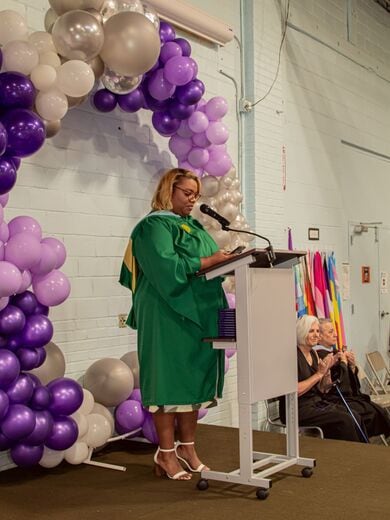
The LGBTQ-affirming charter school may be the first of its kind in Alabama. Magic City founders fought four times for state official approval to open. The academy’s vision statement is to create “a brave and radically inclusive space for the LGBTQ community in Alabama through outreach, training, consultation, and direct services.”
Magic City students had input into the design of their education and their school building, from the rainbow steps to the wide windows in classrooms. Students founded an advocacy group for people of color and a trans activist club. Middle schoolers advocated for social-emotional learning workshops.
Students also had a clear idea of how they wanted the restrooms to look: Instead of rows of semi-private stalls, the restrooms are single-occupancy, gender neutral, and accessible for people with disabilities, Jackson said. That design is a response to the trauma, such as verbal and physical harm, that some students experienced before attending Magic City, she said. LGBTQ+ youth in Alabama are twice as likely to miss school because they feel unsafe or experienced violence on campus, according to data from the Centers for Disease Control and Prevention.
Magic City is also an inclusive and affirming space for its faculty and staff. Jackson grew up in Birmingham and she came out as queer when she attended Howard University. She returned to her home state and, in 2018, founded the Alabama Prism Board (affectionately called Bamaly Prism), which is a network of teachers creating affirming classrooms and resources for Teach For America corps members who are LGBTQ+ as well as other teachers.
“I was a classroom teacher that was in a space that was not LGBTQ+ affirming,” Jackson said. She made her classroom a “space for students where their chosen names and pronouns are honored.” She remembers stopping and having teachable moments when students said homophobic slurs in her classroom. She stressed that the slurs were not terms of endearment but harmful.
“Having those conversations with students in the moment is basically a restorative conversation or restorative circle with the group in the room around why those terms are not appropriate in my space or in my presence at all,” Jackson said.
She also is unapologetic about the related risk of creating an inclusive and affirming place for learning. As a Black woman from the Deep South as well as a queer educator and administrator, Jackson said she takes up space so that other people can too.
Having a teacher show up as their most authentic self is important for students who are LGBTQ+ as well as those who aren’t, Jackson said.
Working Toward Greater Understanding
Making academic lessons representative of LGBTQ+ students can help to reduce bullying, stigma and create an equitable learning environment. That’s why, across the country, educators and advocates are creating inclusive academic environments and curricula.
“LGBTQ+ students often experience a lack of feeling seen, being accepted, getting supported, and having positive role models,” said William Solomon, executive director of innovation and student enrollment at Houston Independent School District in Texas. “We wanted as a district to provide that additional intentional, targeted level of support so that they knew where to go, who to ask for resources, and how to get the help they needed so that they knew that HISD was here for them, had their back, and will do whatever it takes to make sure they receive the high quality education that they're entitled to.”
Solomon organized the district’s first Pride Summit, which was held virtually in April. About 250 attendees received resources, tools, and community connections to help them navigate life as an LGBTQ+ student or to support one. The Montrose Center, a local organization centered around the queer community, and Big Brothers Big Sisters of Lone Star, a local chapter of the national mentoring organization, led workshops and breakout sessions.
One anecdotal sign of the event’s success happened between a transgender child and their parent. The child wanted to use a different name, but their mother didn’t understand why, Solomon said. After the summit, Solomon said, the mother reached out and said, “I get it now. I understand. This makes all the sense in the world.”
Seeing themselves reflected in what they learn can help students who are LGBTQ+ make sense of their place in the world. But that representation and information about crucial historic events around queer rights and LGBTQ+ icons are often missing.
One example of that rarely discussed history is the Stonewall Uprising of 1969. At the time, homosexuality was considered a crime in New York, and gay bars tended to operate without liquor licenses. Police frequently raided gay bars, including the Stonewall Inn in New York City—something that happened again on June 28, 1969. For six days, officers and protestors clashed in what is now considered a key moment in the queer rights movement in the U.S. as well as the world.
“As someone who is a part of the LGBTQ community, I learned about Stonewall on one bullet, on one slide, of one day of my U.S. history class,” said Zach Koung, a former student member of the Howard County Board of Education in Maryland. “I had to learn all this on my own. I learned more about queer history through my women's studies class than U.S. history.”
In Howard County, Koung pioneered efforts for LGBTQ+ inclusivity by organizing support for a unanimously approved LGBTQ+ studies course, working with district staff to allow students to use their chosen name and to add their pronouns on the school system’s digital learning platform. Last year, he was a speaker at SXSW EDU, an annual education conference, and he spoke about LGBTQ+ inclusive curricula at an October summit hosted by Teach For America. While Koung has made strides in his county, the school board of nearby Carroll County voted to ban displaying rainbow Pride flags on school property.
“Inclusive curriculum isn't this feel-good, kumbaya kind of thing,” Koung said. “It's a data-driven approach that saves lives and makes a difference. Having access to an inclusive curriculum substantially increases your ability to learn, your ability to thrive, and decreases depression, anxiety, and suicide ideation. And many of these are things that teens across the country are already struggling with, and we don't need to tack on more challenges.”
It’s difficult to learn at a school where one doesn’t feel supported, said Hammy Hamilton, 18, who graduated high school in Mobile, Alabama, this spring. That’s why, they said, their grades dropped and they felt distracted in class.
“When I was in high school, I didn't understand what I was, but I knew I wasn't a boy and I knew I wasn’t a girl,” Hamilton said. “It's not until I did my own research through queer history where I realized I don't necessarily have to be anything.
“I'm just Hammy, and there's nothing wrong with that. And I feel like if I had a deeper understanding through curriculum, I would've come to that realization a lot sooner and it would’ve saved me a lot of lonely days.”
Interested in Joining Teach For America?
Hamilton makes lessons about queer history more accessible through their work as a filmmaker and advocate for LGBTQ+ rights. They lean into art and comedy with their activism. They also create TikTok videos about education and teaching queer history, covering topics ranging from the origins of the Pride flag to the gay leader of the civil rights movement.
Queer people have always been around, Hamilton said. “It's not anything new, and queer people created the things that are in your household. Queer people helped win wars. Queer people are politicians. Queer people are your doctors. Queer people are your neighbors.”
Fighting for Equity Despite the Backlash
The acceptance queer students receive at Magic City academy is one reason why it’s the type of school that Tomlinson wishes she had attended. But the academy is about two hours away from her hometown and the school she graduated from.
“If I had been able to, I would have moved to Birmingham my senior year and been a student at the Magic City Acceptance Academy,” she said. “And frankly, I didn't even know it existed until this midterm election season came up and all these politicians started spewing these things about trans people.”
Get more articles like this delivered to your inbox.
The monthly ‘One Day Today’ newsletter features our top stories, delivered straight to your in-box.
Content is loading...
In April, a Republican gubernatorial candidate released political ads in which he inaccurately described the academy as a “transgender school.” He used pictures of school faculty members taken during a drag show, which was held at the school as a fundraiser. He lost the primary election.
There have been some unnerving incidents at the school, including a heckler yelling slurs at students and a woman who approached students and filmed them, according to AL.com. Magic City increased its security staff and, according to its website, is accepting donations to spend on security and mental health providers for the upcoming school year.
Teachers put their lessons aside to have heartfelt conversations with students. There is a precedent at the school that teachers will make space for students to express whatever is on their minds at any time, Jackson said.
“I look at places like MCAA, and I just think of the incredible impact that they're having on children and the incredible prosperity that they're bringing to the community and youth as a whole,” said Tomlinson, who has experienced bigotry and heckling firsthand.
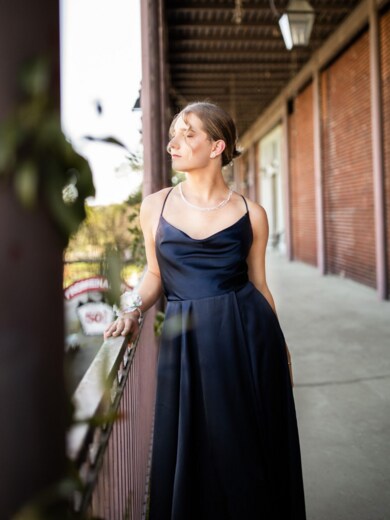
After she came out as trans this year, a local church in Muscle Shoals, her rural Alabama hometown, led protests over her using the girls’ restroom at school. The teenager said that hecklers called her a rapist, a monster, and a murderer.
“I know trans kids at my school that refused to come out publicly until they graduate because they've seen how the community, the school, and the administration rallied around an issue that…they should not even be able to discuss,” Tomlinson said, “because what they're really discussing is my right to exist and my right to live as a trans person.”
There are efforts underway at the federal level to affirm and protect the rights of people who are LGBTQ+. On June 15, President Joe Biden signed an executive order protecting LGBTQ+ youth from the debunked and dangerous practice called “conversion therapy.” On June 23, the U.S. Department of Education announced proposed sweeping changes to Title IX, which protects against sex-based discrimination in federally funded education programs and activities. The regulations would, for the first time, “include sexuality and gender identity in the definition of sex-based discrimination,” according to Education Week. The Education Department also plans to address how Title IX applies to athletics, specifically how schools determine eligibility for student teams.
For now, Tomlinson’s knowledge of relevant laws and her self-advocacy are what she said helped her “exist as a trans person” at the public school she attended. She said she met with school administrators and showed them 25 pages of legal documents such as Supreme Court rulings and information from the National Center for Transgender Equality. “I had to fight for my right to be myself in that school,” she said, “and no student should have to fight for that.”
We want to hear your opinions! To submit an idea for an Opinion piece or offer feedback on this story, visit our Suggestion Box.
Sign up to receive articles like this in your inbox!
Thanks for signing up!
Content is loading...


